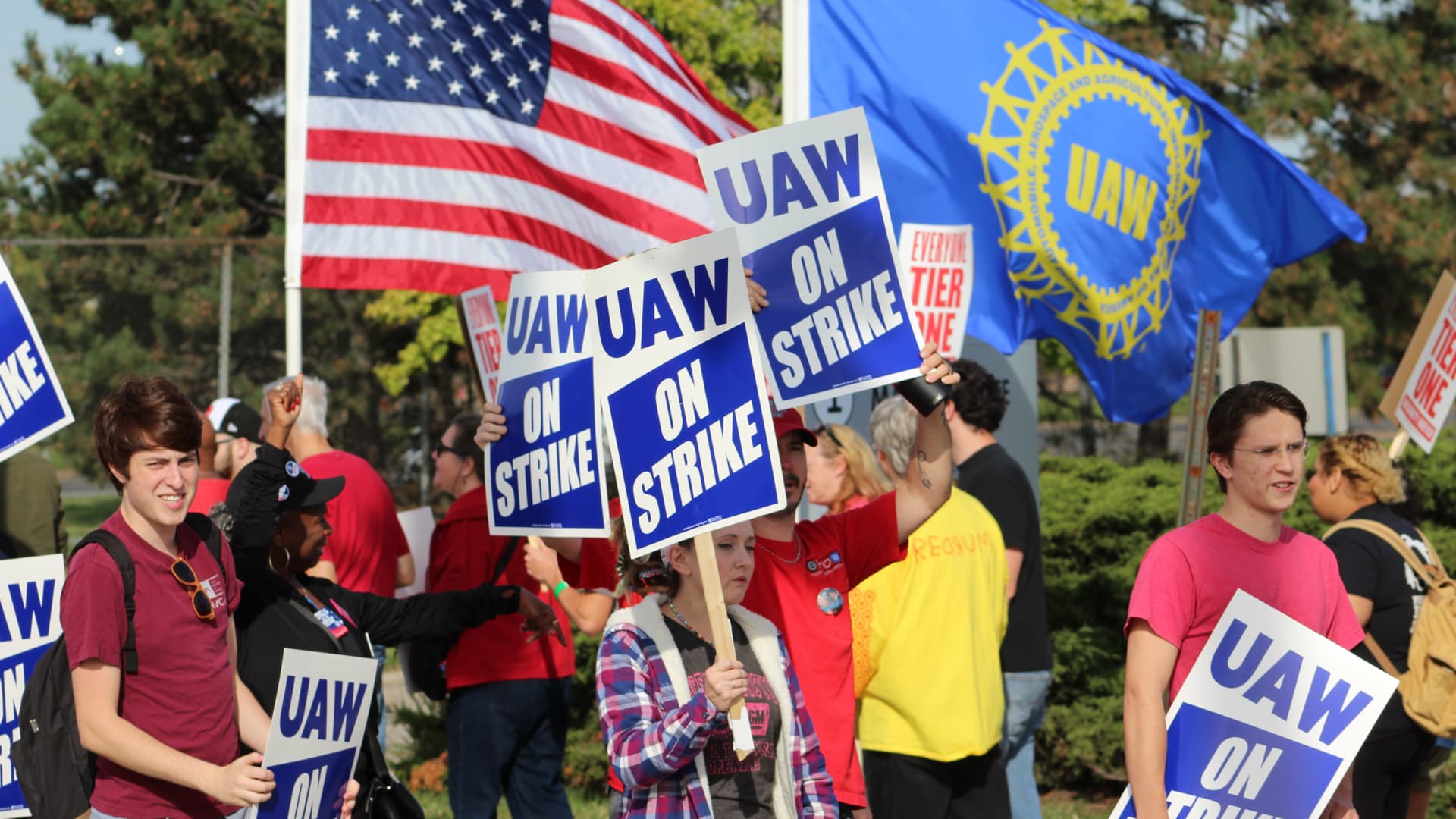DETROIT – As the United Auto Workers prepares for what are expected to be highly contentious negotiations with the Detroit automakers later this year, the union’s leadership is undergoing its largest upheaval in decades.
The shuffle follows a yearslong federal investigation that uncovered systemic corruption involving bribery, embezzlement and other crimes among the top ranks of the organized labor group.
Thirteen UAW officials were convicted as part of the investigation, including two past presidents. As part of a settlement with the union in late 2020, a federal monitor was appointed to oversee the union and a direct election process was voted upon that is reshaping its International Executive Board.
A reform group called UAW Members United has successfully campaigned to elect five new representatives to the 14-member board, but not all seats are settled. Runoff elections are taking place through Tuesday for three other positions, including the highest-ranking post of president.
The results mean a divided board will lead negotiations, starting this summer, with General Motors, Ford Motor and Stellantis. The vote count for the runoff elections will begin Wednesday, overseen by an election vendor and the federal monitor as well as other officials.
“The newly elected members were elected on trying to make change,” said Art Wheaton, a labor expert with the Worker Institute at Cornell University. “They were not elected to get along and play nice together. They were elected primarily because they were going to shake things up.”
Wheaton said new faces in the bargaining room create a “different dynamic” and could hurt stability of the process, but doesn’t change the underlying concerns.
“It certainly creates additional stress or additional problems, but I think the problems are going to be there, no matter who’s at the table.”
For investors, UAW negotiations are typically a short-term headwind every four years that result in higher costs. But this year’s negotiations are expected to be among the most contentious and important in recent memory, against the backdrop of a yearslong organized labor movement across the country, a pro-union president and an industry in transition to all-electric vehicles.
Don’t forget ongoing economic pressures such as inflation and recessionary fears in the years, if not months, ahead. Canadian union Unifor will also be simultaneously negotiating this year with the Detroit automakers, adding even more complexity and competition for investments and jobs.
“There’s a ton of moving parts. It’s getting to be one of the most consequential negotiations since the bankruptcies in 2009,” said Kristin Dziczek, a Detroit-based automotive policy advisor for the Federal Reserve Bank of Chicago.
Wall Street watching
For Wall Street, the fear of complicated and drawn-out negotiations is already spurring cost concerns.
“While the market tends to look through the one-time impact of potential work stoppages, it may not look through the potential for double-digit increases in labor costs that could characterize this year’s negotiations,” Morgan Stanley analyst Adam Jonas said in a note last month.
The union is expected to push for better benefits and wages to offset inflation and reward its members for working through much of the coronavirus pandemic, assisting the companies in reporting record profits.
The automakers are expected to push back on adding fixed costs to their operations and continue to support more flexible benefits such as profit-sharing that give rank-and-file members larger bonuses when the company is doing well. They’ll also be attempting to please the union without causing a prolonged strike.
During the last round of bargaining in 2019, negotiations between the Detroit automakers and UAW included a national 40-day strike against General Motors. The automaker said the strike cost it about $3.8 billion to $4 billion for 2019.
Presidential election
For the 2022 elections and ongoing runoff, the UAW shifted to a direct election format — in which each member and retiree of the union was allowed to vote for officers — doing away with a weighted delegate system that saw one caucus maintain a stranglehold on the union’s elections and leaders for more than 70 years.
The presidential ballot has come down to a runoff between incumbent Ray Curry and Shawn Fain, a UAW Members United candidate and local leader for a Stellantis parts plant in Indiana.
Curry during the election process has tried to distance himself from the former corrupt UAW leaders.
In the general election, Curry received about 600 more votes than Fain. Only 11% of issued ballots, or 106,790, were cast. However, dissident votes were spread across five candidates, some of which have put their weight behind Fain.
Nearly 140,000 ballots had been received through Friday for the runoff elections, according to the federal monitor.
“I just believe the overall top piece is experience,” Curry told CNBC. “Experience is going to be important not just for our bargains taking place this year, but for legislators’ side for membership in total.”
Both candidates have said they will seek benefit gains for members, advocating for the return of a cost-of-living adjustment, or COLA, as well as raises.
“If we’re in inflationary times, it adjusts and makes sure [workers] have some type of benefit that moves their base wage in conjunction with what’s happening in the economy. It can be a good piece for us,” Curry said earlier this month regarding COLA.
UAW Members United ran on the platform of “No corruption. No concessions. No tiers.” The last being a reference to a tiered pay system implemented by the automakers during recent negotiations that members have asked to be removed.
“UAW members have had enough with concessions and company-friendly leadership. We are coming for our fair share whether the Detroit automakers like it or not,” Fain said in an email Tuesday to CNBC. “Our number one task is to recover the concessions that we’ve given up to our employers such as tiered pay and benefits, as well as job security. To win we are going to need to rebuild trust and get every member of this union involved.”
